So Without further ado:
1. Cafe Noir - Jeoung
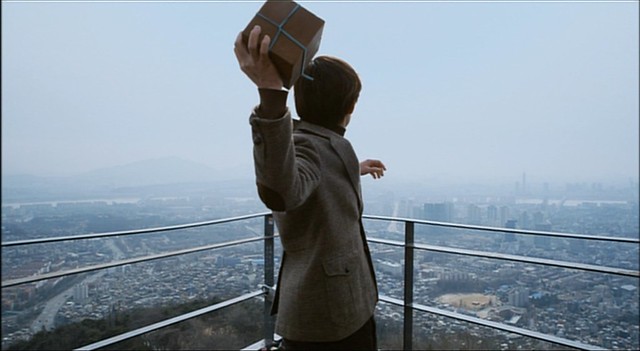 Jeoung Sung-il, a well regarded Korean film critic, makes a directorial debut with Cafe Noir, largely based on two works of literature - Goethe's The Sorrows of Young Werther and Dostoevsky's White Nights. This sprawling three hours plus contemplation on love and heartbreak also draws from many different cinematic sources. This concoction doesn't always work, but is still quite intoxicating. And in Jeoung's hands, Seoul, the neon megalopolis, becomes the new capital of the heartbroken.
Jeoung Sung-il, a well regarded Korean film critic, makes a directorial debut with Cafe Noir, largely based on two works of literature - Goethe's The Sorrows of Young Werther and Dostoevsky's White Nights. This sprawling three hours plus contemplation on love and heartbreak also draws from many different cinematic sources. This concoction doesn't always work, but is still quite intoxicating. And in Jeoung's hands, Seoul, the neon megalopolis, becomes the new capital of the heartbroken.The film opens with a young woman unwrapping and eating a hamburger while looking up forlornly to the heavens in what appears to be an indoor mall. Tears roll down on her cheeks as we see her stuffing her face in real time. She is our Joan of Arc of the fastfood age, christening the film.
Young-soo (Shin Ha-gyun, Sympathy for Mr, Vengeance, Save the Green Planet), a music teacher, is first seen getting dumped by his lover- a mother of one of his pupils, on a Christmas eve. Not accepting the defeat, he devises a plan to off the obstacle (the woman's monstrous, Rilke quoting husband). When he fails to kill the husband of his lover, Young-soo realizes that for the happiness of the woman he loves, it is he who needs to be out of the picture.
For the second part of the film, Young-soo re-emerges, only to go through another crushing heartbreak. He meets a young woman on a bridge by chance (showcasing the brightly restored Chung-gye creek which runs through the heart of Seoul). She begs him not to fall in love with her, but to be a confidant and proceeds to tell him a sob story in one long take- she has been waiting for her lover on the bridge for a year. They made a promise to meet after a year if they still love each other. Tonight might be the night, or tomorrow night, or the night after.... Her lover is obviously not coming, and our melancholic hero can't help falling for this delusional, yet vibrant, lovesick woman.
With its deliberate episodic pacing, arduous monologues, forever tracking shots, mix of B&W/color photography, a lot of intriguing supporting characters and a lot of film references (from The Red Balloon to The Band of Outsiders' dancing sequence to jabbing at recent Korean movie hits- Old Boy and The Host), Cafe Noir is a truly astounding cinematic examination of unrequited love.
With everything mapped out to a tee, Jeoung's style is quite the opposite of Wong Kar-wai. But it wouldn't be a stretch to regard him from now on as Wong's cerebral brother.
2. The Clone Returns Home - Nakajima
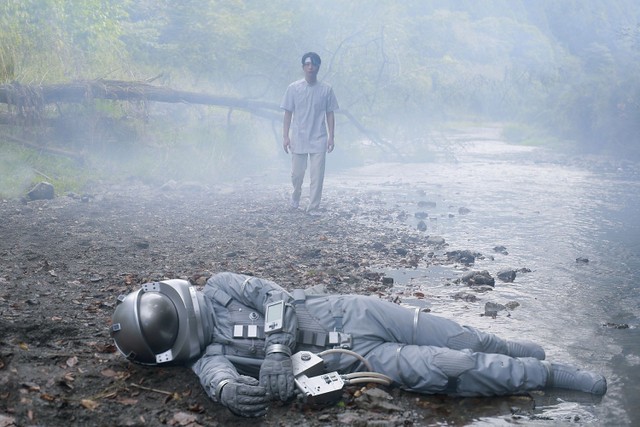 Kanji Nakajima’s meta-physical Japanese sci-fi illustrates the moral implications of human cloning in a very direct yet elegant manner. Kohei Takahara (Mitsuhiro Oikawa), an astronaut with a young wife and dying mother gives consent to a new “life insurance” policy, before his mission. His memories and DNA are stored in a massive computer system. He will be regenerated should he die in the line of duty. Incidentally, Kohei is the survivor of twins. His quieter twin, Noboru, died in a tragic childhood accident that Kohei feels responsible for.
Kanji Nakajima’s meta-physical Japanese sci-fi illustrates the moral implications of human cloning in a very direct yet elegant manner. Kohei Takahara (Mitsuhiro Oikawa), an astronaut with a young wife and dying mother gives consent to a new “life insurance” policy, before his mission. His memories and DNA are stored in a massive computer system. He will be regenerated should he die in the line of duty. Incidentally, Kohei is the survivor of twins. His quieter twin, Noboru, died in a tragic childhood accident that Kohei feels responsible for. Inevitably, the “insurance policy” is fulfilled, much to the dismay of Kohei’s wife Tokie (excellent Hiromi Nakasaku) who was kept out of the consenting process. And an unforeseen error in the regeneration process traps Kohei #2 in his painful memory. The clone is driven to return to his childhood home, to exorcise ghosts of a past he never really lived. The film examines the ideas of identity and duality- twins are, in effect, naturally occurring clones. But although twins are genetically identical, they are by no means the same person. Is it then too much to ask for the exact replica of yourself in a clone?
Cloning technology is no longer a sci-fi fantasy of the distant future. It is a very conceivable procedure and that gives The Clone Returns a considerable weight. The film presents two conflicting viewpoints on nature of human being. For the stone-faced director of the cloning lab, chief Kageyama, the body is just a machine, and memories are just bits of information stored within it. With his cold demeanor, the chief might fail the empathy test shown in Blade Runner. For Dr. Teshgawara, a scientist who successfully cloned his dead granddaughter and imprisoned by the lab for breaking the law, clones are the link between the living and the dead. The resonance, as he coined the term, is the soul that haunts its clone.
The Clone Returns Home is beautifully put together. With exquisitely framed static and perfectly timed slow dolly shots in crushed black silhouettes and faded colors, it is very beautiful to look at. Antiseptic indoor scenes with cryptic lighting and constant low humming of a machine are stark contrast to the dreamy, misty rural landscapes, which are reminiscent of Tarkovsky’s somber sci-fi Solaris. Even the characters, with the way their faces are lit, have inhuman, robotic aura to them as opposed to the naturalistically lit childhood scenes with the pastoral background. Brief scenes in space are efficiently shot while evoking the crushing loneliness. The effective sound design and minimal music also add to create a hypnotic mood through out the film. There are creepy yet stunningly beautiful images as the ghosts materialize themselves as past meets present. Deeply moving and contemplative, The Clone Returns Home is one of the most stunning debut features in years.
3. Tokyo Sonata - Kurosawa
 Kiyoshi Kurosawa always dealt with the ills of modern Japan, but never before as this poignant. Ryuhei Soseki gets downsized from a company where he has been working as an administrative head. He is too ashamed to tell his family. So he goes on as if nothing had happened. His daily routine goes from unemployment line to free soup kitchen line. He finds out that he is not the only one pretending. And his family is a mess. Ryhei's two sons- a never-home older son Takashi wants to join the American military(his reason being an altruistic one against his father's generation's post-war individualism), his too honest younger son wants to learn how to play piano against Ryuhei's wishes(he later on enlists himself for the lessons with his lunch money). There are some great scenes where Ryuhei interviews for menial jobs and finding himself in degrading, emasculating situations. And his secret doesn't last long.
Kiyoshi Kurosawa always dealt with the ills of modern Japan, but never before as this poignant. Ryuhei Soseki gets downsized from a company where he has been working as an administrative head. He is too ashamed to tell his family. So he goes on as if nothing had happened. His daily routine goes from unemployment line to free soup kitchen line. He finds out that he is not the only one pretending. And his family is a mess. Ryhei's two sons- a never-home older son Takashi wants to join the American military(his reason being an altruistic one against his father's generation's post-war individualism), his too honest younger son wants to learn how to play piano against Ryuhei's wishes(he later on enlists himself for the lessons with his lunch money). There are some great scenes where Ryuhei interviews for menial jobs and finding himself in degrading, emasculating situations. And his secret doesn't last long.Wackness begins 2/3 way in with a failed robbery attempt by an amateur burglar(the Kurosawa regular, Koji Yakusho) and taking Mrs. Saseki(great Kyoko Koizumi). Here is what Kurosawa does right. Sonata plays out like a typical Japanese melodrama up until then. It evolves into fleshing out each family member with comic touch rather than being a typical male protag oriented story. It involves a Thelma and Louise style daytrip(much more understated of course) of Mrs. Saseki and the burglar-cum-kidnapper, a Jackie Brown style multi-POV mall confrontation. For some reason this worked for me. Kurosawa manages to hover right above all the stereotypical situations and makes it work with great editing, sound and intimate cinematography(by Akiko Ashizawa). It's the ending that killed me. One of the most beautiful endings I've seen in movies in years.
4. Love Exposure - Sono

With another sold-out screening, Sion Sono's epic Love Exposure at Japan Society: Japan Cuts screening didn't disappoint. Taking cues from a real event (random attack on the religious cult building), Sono builds a teenage love story that is immensely crowd-pleasing and very funny and very very long.
Casting is perfect- Takahiro Nishijima is great as Yu, an effeminate, wide eyed son of a priest who turns to life of Hentai (pervert)- the king of upskirt photography, to please his confession hungry father. Hikari Mitsushima is scrumptious as Yoko, a scene chewing high school bad girl and the source of Yu's bulging erection. As Koike, a scheming cult recruiter, Sakura Ando is very good at being extremely creepy.
Was it Welles or Hitchcock who said the film should only be as long as the duration of your bladder filling back up? Unfortunately my mind has a tendency to wander around three hours mark when I watch a super-long movie. In all honesty, Love Exposure could've been perfect as a lean 2 hr 40 minutes film and still conveyed everything Sono set out to do.
Unlike Sono's other films, Love Exposure has a very sunny disposition from the get-go. During the whole 4 hour running time, the film consistently keeps up its upbeat mood and rarely delves into seriousness. The theme of ideal family, as thoroughly dissected in Noriko's Dinner table with gut wrenching honesty, takes a back seat to a love story here. But it's infinitely more entertaining than any of his other films. In the end, it's not Jesus but a raging hard-on that wins the day.
5. Bad Lieutenant Port of Call New Orleans - Herzog
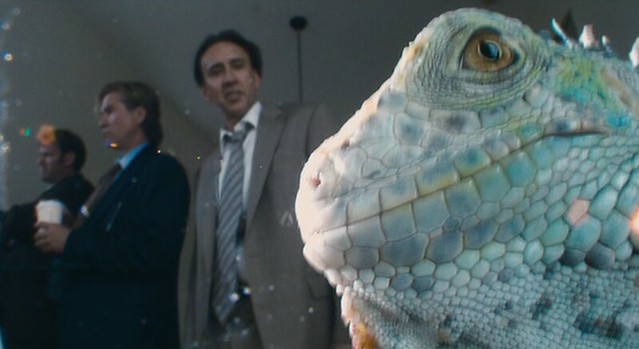
Perhaps the best comedy I've seen in a long time. Cage, like Kinski in Aguirre and Bruno S. in Kaspar Hauser before him, is born to play Terence McDonagh, a decorated, coked up New Orleans cop whose path, by all indications, points straight to an early grave. Cage is in his top form. Under the firm hands of Herzog, his usual overacting comes across as funny and even endearing. Clocking at lean mean 2 hours, Port of Call New Orleans has no fat and is dry as a feather in its post-Katrina setting. As McDonagh goes on solving the homicide case while digging a hole for himself that seems to be getting deeper by the minute, we are presented with delightful moments like Cage threatening to shoot old ladies in the head at a retirement home, blaming them for the downturn of America, hilarious reptile cam and of course, the soul dancing scene.
Herzog's take on Bad Lieutenant far exceeds its typical film noir trappings. First, it's lol funny. And unlike its Coen Bros. counterpart, a contemporary noir masterpiece Miller's Crossing, Bad Lieutenant doesn't feel slick or premeditated at all. It's loose, playful and goofy. McDonagh's ambiguous morality has no heavy handed message and sans serious attitude of Travis Bickle. Herzog must've taken the opportunity to make a satire of the faux seriousness of its namesake original. With great supporting cast including scrumtious Eva Mendez, hot-in-uniform Feruza Balk, scene stealing Shea Whigham (of Wrist Cutters), rapper-cum-actor Xzibit and wired bookie Brad Douriff, Bad Lieutenant: Port of Call New Orleans is definitely one of my favorites this year.
6. Ddongpari/Breathless - Yang
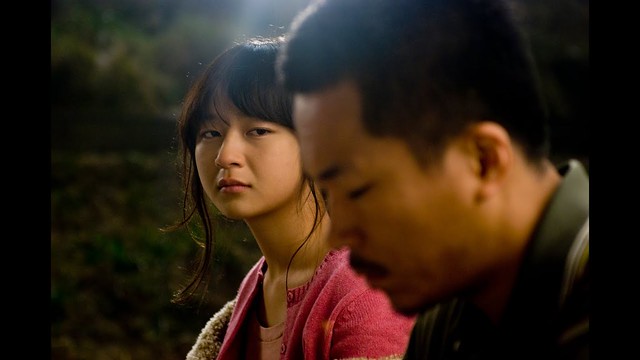
I don’t know how they decided on its English title, but this film’s Korean title Ddongpari literally means “shit-fly”, and it’s a fitting title. With a shaky handheld opening scene, the film starts with a man physically assaulting a woman in the streets of Seoul at night. Enter Sang-Hoon (writer/director/star, Yang Ik-Joon) who proceeds to beat up the man, and in turn, the woman while spewing expletives constantly. Breathless is an unrelentingly brutal film in its depiction of violence and its titular anti-hero’s dirty mouth. It’s safe to say about 95 percent of dialog consists of profanity.
From a broken family, Sang Hoon is driven by his hate for the father who killed his mother, and served 15 years in prison. He beats his father, his crew, student protesters, men, women, motorcycle cops… pretty much anyone he encounters. He even often curses out his own boss, a mild mannered loan shark, in front of his gang. The only people he is kind to (in his brutish way) are his saintly sister and lonely young nephew, to whom he passes his earnings on.
Things take a slight turn when he meets a high school senior Yeon-Hee (Kim Got-Bi) by chance. Their encounter is just as violent as his other encounters- she slaps him and he knocks her cold. He sees something ferocious in her and their expletive-filled platonic relationship begins. In a way, Yeon-Hee is Sang Hoon’s alter ego - tough, foul-mouthed, coming from a similar background where domestic violence was as common as kimchee on your dinner table. Her younger brother is destined to be a criminal- another link between her and Sang-Hoon’s underworld. She can’t take the ugly reality at home and finds a little oasis in the company of Sang-Hoon, his sister and the little boy.
Breathless is gritty, violent and devoid of any romanticism associated with the usual lowlife gangster film genre. It’s an examination on the cyclical nature of violence. The look of the film captures the reality of the underprivileged class in Korea: the characters’ tiny living quarters, the seedy street corners, the unglamorous faces of the actors. Everything feels very authentic down to smallest details (cheap Chinese food, outdoor snack vendors, drinking in public, gameboy envy, etc).
It's a tad bit predictable- the harder they come, the harder they fall. The violence and kids crying faces finally get to Sang-Hoon and force him to contemplate quitting his criminal ways. Some of the handheld scenes seem amateurish. Flashback expositions can be overbearing. But it doesn't really matter. Yang’s performance is nothing short of a revelation as a small time thug who is living, breathing violence. He immerses himself in a physically demanding role and creates a completely authentic character. Kim Got-Bi as Yeon-Hee, a tall, round faced, tough high school girl who is not intimidated by Sang-Hoon is also terrific. Her unassuming presence and inner strength balances out Yang’s hard-edged criminal.
The violence in Breathless is not stylized. It’s grotesque. This is far from Park Chan-Wook film. We see unfettered brutality again and again that we get tired the ugliness of it all as Sang-Hoon does. And this is why the film works. By the time the emotionally charged climax rolls around, we are completely invested in this hard-to-love brut. Yang has more in common with Shane Meadows way of filmmaking than what its English title evokes. If you can stomach the violence, Breathless is a very rewarding film.
7. La Nana/The Maid - Silva
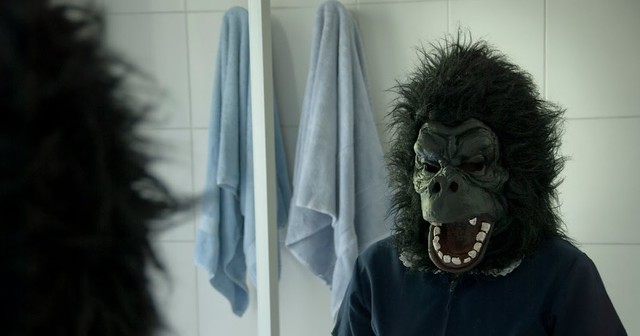
Raquel (Catalina Saavedra) has been working for the same Buenos Aires upper class family with 4 children for the last 23 years. She is a tough, no nonsense housemaid. From suffering a chronic headache and enormous house chores day in an day out, she has a fainting spell one day and her employer, Pilar decides to hire another help. But Raquel is a little more than territorial when it comes to sharing her duties. It is hinted that she had another helper get fired.
After watching Headless Woman and reading about This film beforehand, I was sort of expecting another biting satire of Bourgeois life in the well to do Argentine society. Is it love she has for the family or is it that she is institutionalized after all these years? These questions turn out to be unimportant in the film. The Maid is more of a character study which is funny and warm without being coy or sentimental. Silva has an eye and ear for details and natural dialog that is very humanistic. Raquel favors the cute teenage older son of the family who is a chronic masturbator over older daughter who is in college, of whom she sees as a threat (against what?). All the tits and tats of domestic power struggle are often funny but not exaggerated.
After Raquel drives out 2 other 'competitors' with intolerable cruelty, she meets her match in Lucy (Mariana Loyola), a bespectacled younger woman with a winning smile and wholesome personality who is different in every aspect from her predecessors to Raquel and to us. They hit it off- uptight Raquel slowly opens up and we see her smiling. Lucy even invites her to spend Christmas with her family in the country.
The Maid features one of my favorite movie endings in recent years. Slice of life that is both touching and real.
8. Limits of Control - Jarmusch
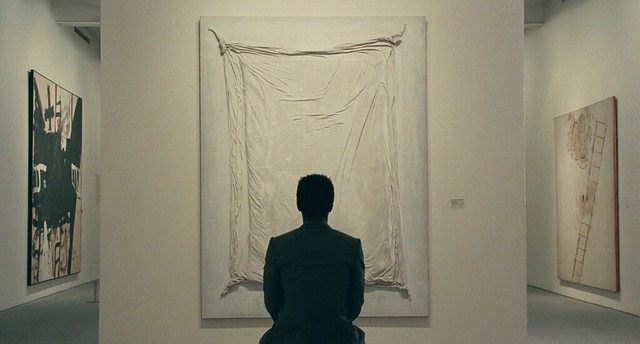
Jarmusch's contemplation on subjectivity in art. An enigmatic, immaculately dressed black hitman (Isaach De Bankolé) is on assignment communicating with various contacts only with exchanges of matchboxes with indecipherable codes only he understands. This is the set up for the Limits. But this being a Jarmusch film, nothing plays out conventionally, even for Jarmusch's standard(?). This is his most abstract film yet. Sure, his deadpan humor involving repetitions of the scenes and lines are there and so as his usual fish out of water elements. The Spain setting and international cast indicates political undertones, but this being a Jarmusch film, it's too cool to be preachy or didactic. With hypnotic music by Boris and many visual cues, this feels more like a Lynch movie.
Only Jarmusch can get away with pretentious shit/movie about art like this. I mean, who could get away with using naked girls as a joke (this more than Broken Flowers)? Less hypnotic than Dead Man but infinitely more interesting than anything else he's done since, Limits of Control is more of an exercise in Jarmusch-ism.
9. Julia - Zonca

Tilda Swinton is Julia, a major skank with a drinking problem. The film begins with her partying at a bar, drunk as skunk, flirting with everybody and anybody, then wakes up cotton mouthed in a car that belongs to a guy she banged the night before and gets fired from her low level real estate job for being late and drunk.
She then runs into a freaky neighbor at a forced AA meeting, who tells her a sappy story of getting back her son from his rich grandfather. She wants help from Julia, in kidnapping. There will be money for her. For anyone with half the brain, the plan is totally ludicrous and can see through the woman is a nut job. Not our desperate skank Julia. Half of the film, Julia is a wreck and hard person to sympathize with: past her prime, making all the bad decisions in her lower class midlife crisis to impending oblivion. Then, after a botched kidnapping of the boy, fleeing to Tijuana, Mexico, she slowly finds her life slowly coming to focus.
Zonca returns after 9 year hiatus with another character driven social realism movie here. Having been a big fan of his Dreamlife of Angels, Julia is a great, well deserving comeback for me. It's an interesting choice for Zonca and writing partner Aude Py to set the film in LA and Mexico using British actor Swinton to play an American floozy. The film keeps you on your toes as to where it is headed, breaking all the conventional cliché plotlines. And it's Swinton's finest hour since Deep End, as a conflicted, less than perfect small time crook finding her way. Yorick Le Saux's photography (frequent collaborator of Ozon and Assayas) is unassuming and intimate. The comparison with Cassavetes' Gloria is a valid one, but Swinton really hold her own here. She does not overwhelms the screen with her acting, she is just utterly convincing as Julia the character.
10. Watchmen - Snyder
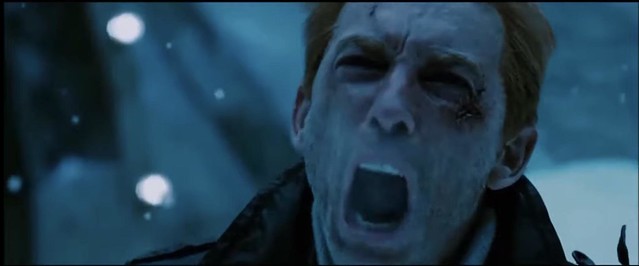
It's really a director's film. Snyder's tongue in cheek graphic novel adaptation gets the most of it right faithfully, from two dimensional feel of the imagery with new age-y primary color-palette to Alan Moore's cynical exploration of the ugly side of Humanity. The immensity and depths of the source material are concisely packaged and very well realized in its almost three hour running time - I had a great pleasure seeing Moore's alternate reality (the 80's) coming to life in such detail.
It's Rorschach (by Jackie Earl Haley, in the performance of the year), a vigilante who lives by his principles - "Even in the face of Armageddon, never compromise!" that the teenager inside me couldn't help but admire and root for.
Kudos for Snyder sticking to his gun and not mess with the original material too much.
Honorable Mention: Unmistaken Child, Exploding Girl, Somer's Town, Manjadikuru, Louise Bourgeois: The Spider, the Mistress and the Tangerine, District 9, The Road, In the Loop, Cold Souls, Dead Snow, Zombieland, Throw Down Your Heart...